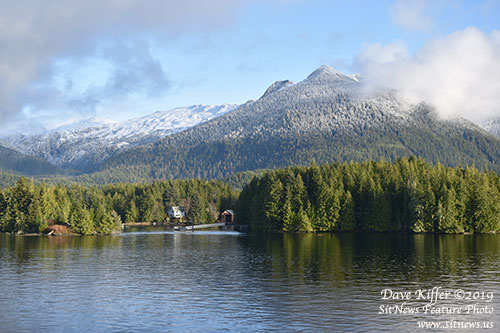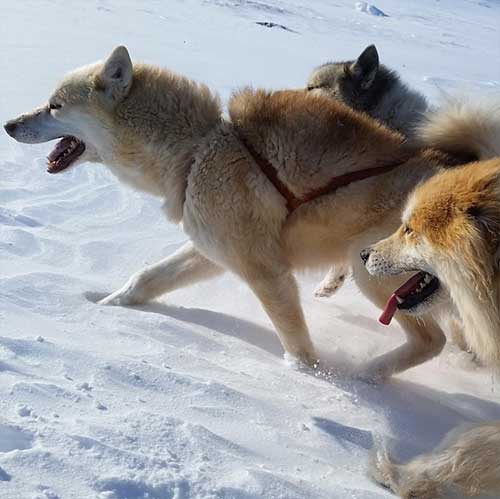
















Weekly Specials
Online Shopping; Pickup or Delivery |
|






 Contact Contact 
 Webmail
Letters Webmail
Letters
 News Tips News Tips
 Copyright Info Copyright Info
 Archives Archives
Quick News
Search
 Alaska Alaska
 Ketchikan Ketchikan
 SE Alaska SE Alaska
Columns
- Articles
 Dave Kiffer Dave Kiffer
 Money Matters Money Matters
Historical
Ketchikan
 June Allen June Allen
 Dave
Kiffer Dave
Kiffer
 Louise
B. Harrington Louise
B. Harrington
Sports
 Ketchikan Links Ketchikan Links
Public Records
 FAA Accident Reports FAA Accident Reports
 NTSB
Accident Reports NTSB
Accident Reports
 Court Calendar Court Calendar
 Recent Filings & Case Dispositions Recent Filings & Case Dispositions
 Court Records Search Court Records Search
 Sex Offender Reg. Sex Offender Reg.
 Public Notices Public Notices
 Alaska Recall Alerts Alaska Recall Alerts
 Recalls.gov Recalls.gov
 AST Daily Dispatch AST Daily Dispatch
 KTN
Police Reports KTN
Police Reports
 Juneau Police Reports Juneau Police Reports
Weather,
Webcams
 Today's
Forecast Today's
Forecast
 KTN
Weather Data KTN
Weather Data
 AK
Weather Map AK
Weather Map
 AK Weathercams AK Weathercams
 AK Earthquakes AK Earthquakes

|
|

Friday
November 29, 2019

|
Deer Mountain From Snow's Cove
Front Page Feature Photo by DAVE KIFFER ©2019
To have your photo featured on the front page, email your photo(s) to editor@sitnews.us
|
|
Ketchikan: Ward Cove has been Ketchikan economic engine for 100 years; Cruise ship port would redevelop pulp mill site By DAVE KIFFER -This summer's announcement that a multi-ship cruise terminal is planned for the old Ketchikan Pulp Mill site in Ward Cove is a reminder of the important economic role the cove has played in the community over the years.
Ward Cove has been home to a cannery, the pulp mill, numerous smaller businesses and even a town that sought to supplant Ketchikan as the main community in the area.
Ward Cove also comes with a built-in mystery. Just who the heck was "Ward?"
No one knows exactly.
In the 1960s and 70s, regional historian and Alaska place names expert Bob DeArmond spent a fair amount of time trying to determine where the name came from. He was more successful at debunking theories. He first determined that the "Dictionary of Alaska Place Names" was incorrect in determining the name came from the US Coast Survey of the early 1880s. Place Names said "Ward" was one of the officers on the USS Patterson that surveyed the area, but DeArmond found the ship had no such officer.
DeArmond also investigated the claim that it was a misspelling of the name "Waud"" after W.W. Waud who had a salmon saltery in the area from 1883 to 1892. But DeArmond determined that the name "Ward's Cove" predated the saltery.
DeArmond wrote in "Names on the Chart" that it had been likely named after a Hudson's Bay employee back in 1879, when HMS Osprey stopped in the cove.
From the early days, Ward Cove was prized as one of the best natural anchorages in Southeast Alaska. It is interesting to think how Ketchikan would have developed differently if the community had begun in Ward Cove and the Ward Lake/Lake Harriet Hunt drainage with all its flat land, as opposed to the narrow, rocky shoreline along Ketchikan Creek.
Several American survey missions used Ward Cove as bases of operations in the 1880s and 1890s. While those missions were undergoing, steamships such as the Ancon and the Idaho stopped in the cove to provision the surveys, creating some of the first economic activity in Ward Cove.
Besides Waud's, another saltery was based in Ward Cove. Henry Imhoff opened the facility in 1896. Imhoff's daughter would later marry Eugene Wacker, another important name in Ward Cove history.
In 1901, William Connell opened the Alaska Fish and Mining Company in the cove. It failed, as did an effort for a third saltery owned by T.L. Foster.
Meanwhile, former Territorial Governor August P. Swineford had hatched a plan for his own town in Ward Cove, the city of Revilla. (See "Revilla Hoped to Eclipse Ketchikan," SITNEWS, July 31, 2009).
At the time, Ketchikan and Loring were battling to be the location of the custom house for Southern Southeast Alaska. All ship traffic entering Alaska from Dixon Entrance was required to stop at the custom house and whichever city that had it would likely become the dominant city in the region. Swineford, also the publisher of Ketchikan's first newspaper - the Mining Journal, offered a third option with Revilla, located in the best harbor in the area.
Swineford even got the government to set up a post office in Revilla, He wasn't the only one to see potential in the cove. The Pacific Coast Steamship Company had also built a small wharf in the cove.
When federal fishery official Jefferson Moser visited the area in 1898, he noted that besides the steamer wharf and the post office, the community had a handful of stores and several dwellings. There was also a sawmill owned by William Harper and the Revilla Hotel and Restaurant. Development taking place in both Loring and Ketchikan proved a ready market for the sawmill which supplied both of the Revilla's competitors.
Unfortunately for Revilla, and Loring, the government finally chose Ketchikan as the customs house site. More than anything, that act solidified Ketchikan's future as the primary community in the region for the next century. Revilla had ceased to exist as a separate town by 1902. The sawmill continued to operate for several more years, under the management of William Connell and later J.R. Heckman.
During this time, Ward Cove was accessed by boats. But prelimary efforts had begun to build a "pioneer" road the five miles between Ketchikan and Ward Cove. It would be completed in 1924. - More...
Friday PM - November 29, 2019
|
|
Ketchikan: State Plans To Relocate Ketchikan Trooper Dispatch Employees to Anchorage – The Alaska Department of Public Safety has notified the Ketchikan Gateway Borough of its intent to relocate all dispatch employees from the Ketchikan Trooper facility to Anchorage by 2021.
According to the Department of Public Safety, beginning with an FY 2019 capital appropriation of $3.5 million (SB142), the Department of Public Safety has initiated a project to unify regional emergency dispatch services to a new center in a State-owned facility in Anchorage and to establish the foundation for implementing enhanced 911 services across the state.
According a news release from the Ketchikan Gateway Borough, the Alaska Department of Public Safety expects to produce cost savings and operational efficiencies by combining emergency dispatch services currently provided by Ketchikan, Wasilla, and Soldotna into one center. This will result in the transfer of the seven Ketchikan-based Emergency Services Dispatcher positions to Anchorage by July 2021.
Ketchikan Gateway Borough Mayor Rodney Dial conducted a teleconference with DPS Deputy Commissioner Leon Morgan on November 27th , to receive an update on the proposed change. Specifically, Mayor Dial asked if technological upgrades would allow the Ketchikan dispatch center to provide the desired State services remotely from Ketchikan. According to the Deputy Commissioner, it is feasible, but would result in additional expenditures and reduce efficiencies expected as a result of this project. Additional information has been requested and will be evaluated when received. - More...
Friday PM - November 29, 2019
Alaska: No Policy of Denying PFDs Based on Marital Status – As Governor Michael J. Dunleavy clearly explained last week, “The PFD should go to all eligible Alaskans regardless of their marital status.” Despite recent media reports to the contrary, neither the State of Alaska nor the Department of Revenue have a policy of denying PFDs based on same-sex marital status. The State’s policy is that the unconstitutional statute currently on the books is not enforced, and if an individual is eligible under all the lawful criteria, he or she will receive a PFD.
After learning about the erroneous denial of one individual’s PFD, the Division remedied the matter in early November. That individual nevertheless subsequently filed a lawsuit in federal court. Any further questions about the lawsuit should be directed to the Department of Law.
According to a news release, the Alaska Department of Revenue continues to assess PFD Division records to determine whether any other improper denial letters were inadvertently sent out and not yet corrected so that it can remedy any mistakes as quickly as possible. The Alaksa Department of Revenue asks individuals to come forward if they feel they were denied based on their marital status or if anyone has knowledge of other inadvertent denials. - More...
Friday PM - November 29, 2019
|
|
Arctic: Unique sled dogs helped the inuit thrive in the North American Arctic - Inuit sled dogs have changed little since people migrated to the North American Arctic across the Bering Strait from Siberia with them, according to researchers who have examined DNA from the dogs from that time span. The legacy of these Inuit dogs survives today in Arctic sled dogs, making them one of the last remaining descendant populations of indigenous, pre-European dog lineages in the Americas.
The latest research is the result of nearly a decade's work by University of California, Davis, researchers in anthropology and veterinary genetics, who analyzed the DNA of hundreds of dogs' ancient skeletal remains to determine that the Inuit dog had significantly different DNA than other Arctic dogs, including malamutes and huskies.
Dr Carly Ameen, an archaeologist from the University of Exeter who led the study, said: "Dogs have lived in North America for as long as humans, but we show here that the Inuit brought new dogs to the region which were genetically distinct and physically different from earlier dogs.
Experts had thought the Inuit used dogs to pull sledges, and this is the first study which shows they introduced a new dog population to the region to do this. These dogs then spread across the North American Arctic alongside Inuit migrants.
"Thousands of years ago there was not the huge number of dog breeds as we know them today. Through analysing the DNA and morphology of the remains of hundreds of dogs we've found that the dogs used by the Inuit had distinctive skull and teeth shapes, and would have likely looked different in life to dogs already in the Arctic."
The article, "Specialized sledge dogs accompanied the Inuit dispersal across the North American Arctic," was published Wednesday in the Proceedings of the Royal Society B: Biological Sciences. From UC Davis, authors include Christyann Darwent, professor of anthropology; Ben Sacks, adjunct professor and director of the Mammalian Ecology and Conservation Unit, Veterinary Genetics Laboratory, School of Veterinary Medicine; and Sarah Brown, a postdoctoral researcher. Lead author Carly Ameen is an archaeologist from the University of Exeter; Tatiana Feuerborn is with the Globe Institute in Denmark and Centre for Palaeogenetics in Sweden; and Allowen Evin is at the CNRS, Université de Montpellier, Institut des Sciences de l'Evolution in Montpellier, France. The list of authors includes many others from a large number of collaborating institutions.
Qimmiit (dogs in Inuktitut) were viewed by the Inuit as particularly well-suited to long-distance hauling of people and their goods across the Arctic and consuming local resources, such as sea mammals, for food.
The unique group of dogs helped the Inuit conquer the tough terrain of the North American Arctic 2,000 years ago, researchers said. Inuit dogs are the direct ancestors of modern Arctic sled dogs, and although their appearance has continued to change over time, they continue to play an important role in Arctic communities. - More...
Friday PM - November 29, 2019
|
DAVE KIFFER: Cast Those Stones, Ketchikan is Without Sin! - Ketchikan has come a long way in the last 90+ years.
The 1920s were a rollicking time in the First City. The city was shaking off the economic doldrums of the teens and the salmon canning industry was booming thanks to the fish traps that supplied hundreds of thousands salmon each year to Ketchikan's 13 canneries.
It was the time when Ketchikan, rightfully, called itself the "Salmon Capital of the World."
But, there was something else that Ketchikan was known for, far and wide.
Vice.
While Prohibition was making the rest of the country very thirsty, Ketchikan's proximity to ready alcohol in Canada meant that any boat that could float was being pressed into "rum running" across Dixon Entrance.
And, with the hundreds of single fishermen in the community, more than 100 women of negotiable affection were plying their trade on Creek Street and elsewhere.
In fact, vice was getting so prevalent that the leaders of Territorial Alaska were taking to the newspapers and the floor of the Congress to decry how low Ketchikan had apparently sunk.
The previous Congressional representative James Wickersham was quoted in the Los Angeles Times as calling Ketchikan the "wickedest place" in the country.
And the current (1920s) Alaska representative to Congress Dan Sutherland called Ketchikan the "worst pest hole in America" in a speech to Congress.
It was an interesting time in Ketchikan.
Now, apparently, not so much. - More...
Friday PM - November 29, 2019
|

Political Cartoon: Black Friday, Cyber Monday
By Christopher Weyant ©2019, The Boston Globe, MA
Distributed to paid subscribers for publication by Cagle Cartoons, Inc. |
Second Amendment By A.M. (Al) Johnson - Often in the public square various opinions regarding the Second Amendment is the topic of discussion. Pro or con, the language used by either side reflects opinion often given without any real knowledge, history, or fact.
To this discussion I would offer the following interpretation to which I have a profound belief reflects the true purpose of the Second Amendment as it relates to the intent. - More...
Friday PM - November 29, 2019
Response to Public Records Request By Mike Holman - The City of Ketchikan responded to my October 18 Public Records Act request on November 19.
One of the more interesting documents produced by the City is the response of Market Sensing Survey Respondent A. Pages 3-4 of Respondent A’s survey response are attached. I invite you to read them. If you read them, I’m sure you will conclude that the City should hasten to hand over the keys to our docks to Respondent A on January 21. LOL - More...
Tuesday PM - November 26, 2019
Emergency Declarations are for Things That Can Be Changed By John Harrington - Terri Robbins is “appalled” by DEC Commissioner Jason Brune’s statement at the AFN. Apparently the commissioner said, “that climate change is not an emergency in Alaska.” She even accuses him of potential “malfeasance of the most egregious kind.” Terri suggested that he consult with scientists.
Terri’s letter is political propaganda. It is like much of the discussion on ‘Global Warming’ that is reported routinely. It is heavy on half-truths and biased reporting. Like Teri’s attempt to silence the Commissioner, other attempts to silence dissent, and destroy dissenters is happening regularly. The lack of civility, and unwillingness to acknowledge differing data sets and opinions is typical of the anti-science approach to Global Warming theories promoted by the extremists. It is akin to those religious leaders of the past who relied on dogma and tried to silence scientific discussion. - More...
Tuesday PM - November 26, 2019
Impressive Work Ethic By A.M. Johnson - Within the past days, a work order on the hook with KPU to install a power pole to provide access to our breaker box in compliance of electrical code, was completed.
Was advised about 20 minutes to their arrival of their coming. The crew of three linemen, all young well fit lads, discharged from the trucks, made a ground inspection, speaking quietly among them selves. Shortly they spread out to their respective positions and actions directed by obvious many such activities with power pole placement.
My view of these lads was made impressive by the work ethic, the safety roles each demonstrated again, as by force of having worked as a team where safety on the site was second nature. Upon completion of the pole placement, the area was cleaned and left in perfect condition. - More...
Tuesday PM - November 26, 2019
Open Letter To DEC Commissioner Jason Brune By Terri Robbins - I was appalled to learn of your recent statement at the AFN conference. To say that climate change is not an emergency in Alaska is incorrect, at best, and malfeasance of the most egregious kind, at worst.
We just experienced the hottest summer on record. Sea levels have risen, forcing coastal villages to relocate. Habitat for polar bears and other arctic mammals is disappearing at an alarming rate. The interior experienced devastating wildfires, as did south central and the Kenai Peninsula. The water levels in key salmon streams was dangerously low. Southern southeast communities were forced to rely on diesel power to supply electricity due to low levels of water in lakes supplying hydropower. An extreme drought was declared. In our oceans, whales were dying in large numbers due to starvation, arguably caused by warmer ocean temperatures which killed off plankton and krill. - More...
Wednesday PM - November 20, 2019
 |
State Legislature Year in Review By Rep. Dan Ortiz - As the House Representative for District 36, I’m writing to update you on some of the issues currently before the Alaska State Legislature. The 2019 legislative sessions were challenging – we continued to grapple with creating the budget, implementing a long term sustainable fiscal plan, and address declining revenue.
While we were able to hold fast on funding for departments like Fish & Game and Education, the Marine Highway System faced unprecedented cuts. During the interim, I have been focused on re-establishing the AMHS link to Prince Rupert. I will continue to push this issue until we see a long-term commitment by the Alaska Department of Transportation to keep Southeast connected.
New sources of revenue were not addressed, and funding for the budget continues to come predominately from our oil resources and a portion of the Permanent Fund Earnings. I am an advocate for policies that will promote as large of a dividend as possible while maintaining funding for essential government services and allowing for growth in the overall value of the Permanent Fund itself. - More...
Tuesday PM - November 19, 2019
 |
Save Our Seas 2.0 tackles global marine debris crisis By Sen. Dan Sullivan, Sen. Sheldon Whitehouse, Sen. Bob Menendez - We may have plenty of political differences, but we come from coastal states. That means we have a front-row seat to the peril of plastic waste and marine debris flowing into our oceans at the rate of around 8 million metric tons per year. We understand what it will mean for our fishing and tourism industries when the weight of plastic in our oceans equals the weight of fish in the sea — something projected to happen by mid-century. We don’t have a moment to lose in confronting this problem.
That’s why we built a coalition in Congress and gathered input from environmental and industry stakeholders alike. Despite a divided Washington, that work resulted in a bill that won broad, bipartisan support. When the Save Our Seas Act became law last October, it was a moment of bipartisan progress on a vital issue — one to be celebrated.
Before the president’s ink on Save Our Seas was dry, our bipartisan trio of senators began developing the Save Our Seas 2.0 Act. We sought to harness the momentum behind the first bill to up the ante on combatting the global marine debris crisis. Marine debris requires multifaceted, multisector solutions with a global reach, and the United States ought to be driving these solutions.
In developing the Save Our Seas 2.0 Act, we collected hundreds of comments and ideas from researchers, federal agencies, nongovernmental organizations and industry. We reviewed the latest science on marine debris and plastics pollution. We identified areas ripe for legislative action and others where investments in research are needed. We looked inward at the United States’ own waste management systems and how we could better position the country as an international leader — not hindrance. - More...
Tuesday PM - November 19, 2019
 |
Impeachable Offenses By Donald Moskowitz - Article Two of the U.S. Constitution states "The President, Vice President, and all civil officers of the United States, shall be removed from Office on Impeachment for, and Conviction of, Treason, Bribery, or other high Crimes and Misdemeanors."
The current impeachment inquiry by the U.S. House of Representatives against President Trump is focusing on the allegation he tried to bribe and/or extort President Zelensky of Ukraine to investigate the Bidens in the runup to the 2020 election in exchange for $400 million in foreign aid to Ukraine. The investigation of the Bidens did not occur and the $400 million in aid was subsequently given to Ukraine.Therefore no bribery or extortion occurred.
But did President Trump's actions meet the test of "high Crimes and Misdemeanors"?
A recent president to be impeached was Bill Clinton.. He was impeached for perjury and obstruction of justice relative to the Monice Lewinsky affair. Richard Nixon was charged, but not impeached as an outgrowth of the Watergate coverup. He was charged with obstruction of justice, abuse of power and defying subpoenas during the impeachment investigation. The House Judiciary Committee stated that "high Crimes and Misdemeanors" goes beyond crimes to include "behaving in a manner grossly incompatible with the proper function of the office and employing the power of the office for an improper purpose or personal gain."
Going back to the Constitutional Convention of 1787 the founding fathers decided the phrase "high Crimes and Misdemeanors" provided "flexibility and guidance" in deciding on impeachable offenses, which references 400 years of practice in Great Britain. - More...
Tuesday PM - November 19, 2019
Email letters, opinions, OPEDs to editor@sitnews.us
|
Articles &
photographs that appear in SitNews may be protected by copyright
and may not be reprinted or redistributed without written permission
from and payment of required fees to the proper sources.
E-mail your news &
photos to editor@sitnews.us
Photographers choosing to submit photographs for publication to SitNews are in doing so, granting their permission for publication and for archiving. SitNews does not sell photographs. All requests for purchasing a photograph will be emailed to the photographer.
|
|















The Local Paper is
available online.
Click here for this week's printed edition (PDF)


|
|


![]() Contact
Contact ![]()
![]() Webmail
Letters
Webmail
Letters![]()
![]() News Tips
News Tips![]()
![]() Copyright Info
Copyright Info![]() Archives
Archives![]() Alaska
Alaska![]() Ketchikan
Ketchikan![]() SE Alaska
SE Alaska![]() Dave Kiffer
Dave Kiffer![]() Money Matters
Money Matters ![]() June Allen
June Allen![]() Dave
Kiffer
Dave
Kiffer![]() Louise
B. Harrington
Louise
B. Harrington ![]() Ketchikan Links
Ketchikan Links![]() FAA Accident Reports
FAA Accident Reports ![]() NTSB
Accident Reports
NTSB
Accident Reports![]() Court Calendar
Court Calendar![]() Recent Filings & Case Dispositions
Recent Filings & Case Dispositions ![]() Court Records Search
Court Records Search![]() Sex Offender Reg.
Sex Offender Reg.![]() Public Notices
Public Notices![]() Alaska Recall Alerts
Alaska Recall Alerts![]() Recalls.gov
Recalls.gov![]() AST Daily Dispatch
AST Daily Dispatch![]() KTN
Police Reports
KTN
Police Reports![]() Juneau Police Reports
Juneau Police Reports ![]() Today's
Forecast
Today's
Forecast![]() KTN
Weather Data
KTN
Weather Data![]() AK
Weather Map
AK
Weather Map![]() AK Weathercams
AK Weathercams![]() AK Earthquakes
AK Earthquakes










































